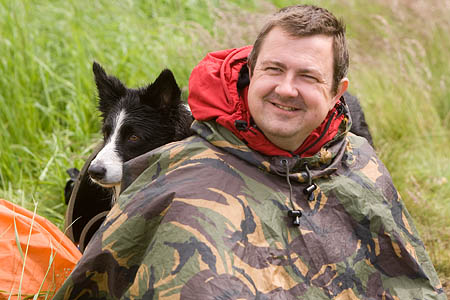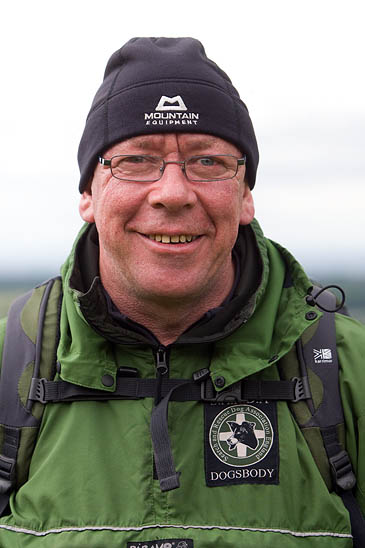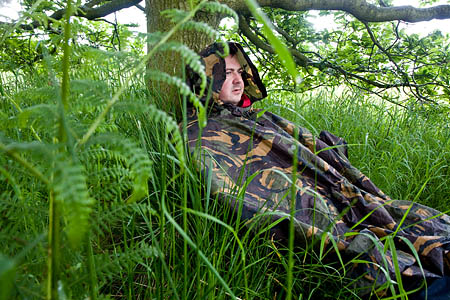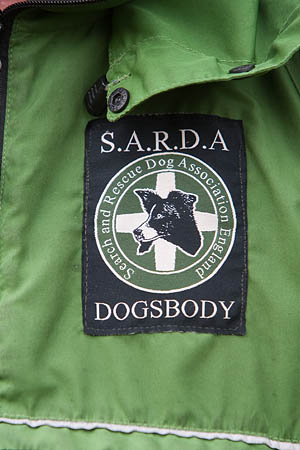Wanted: committed men and women who love the outdoors who are happy to lie around doing nothing in all weathers. Must like animals. Pay: nil.
The warm glow of being a vital part of Britain’s mountain rescue movement may be comfort for the freezing cold conditions you will be expected to endure in your role as a Dogsbody.
These unsung heroes are the live ‘bodies’ used by members of the Search and Rescue Dogs Association to train their animals to find missing walkers, climbers and other outdoor enthusiasts.
Like their colleagues in the mountain rescue teams and various Sarda organisations, Dogsbodies are unpaid, yet travel to all parts of the UK to lie concealed, often for hours on end, on the hills in the hope the search dogs will find them.
The tragic death of mountaineer John Taylor in an avalanche on Mont Maudit in July brought to light this little known branch of mountain rescue.
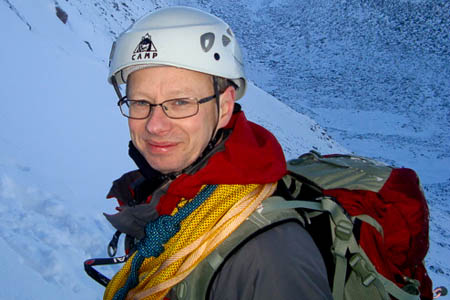
Dogsbody John Taylor who lost his life in an Alpine avalanche
Mr Taylor, of Poppleton near York, was a Sarda (England) Dogsbody. His death was mourned by his many friends in the movement.
The ‘bodies’ are a vital but often overlooked group of people without which rescue dogs could not function. Ian Thompson, chair of Sarda (England) pointed out the hardy volunteers even missed out earlier this year when mountain rescuers were being rewarded for their service.
He said: “If you have five years’ service or more in mountain rescue, you are entitled to the Queen’s Diamond Jubilee Medal.
“But we have a lot of people who body for us and are not mountain rescue members and have done it for 25 years.
“They are rather the unsung heroes of mountain rescue.”
Rod Kelly, responsible for Sarda (England)’s Dogsbodies, said: “Dogsbodies are the most valued people who go out and hide for our dogs on our training and assessments courses.
“Dogsbodies assist from the very start of the dogs training.
“When working with the puppies they help to get the dog socialised with strangers and encourage the dog to bark on command. This is how our dogs indicate they have found.”
Dave Hubbard of Ashford, Kent, shows the sort of dedication typical of a Dogsbody. On a training exercise earlier this year, the 50-year-old, who works as a compounder in a perfumery, travelled almost 300 miles to take part in the weekend on the Cleveland hills in North Yorkshire.
“I’m quite new to it – I’ve only been doing it three years or so,” he said. “I love walking. We go to the Peak District and the Lake District. I’ve walked round the coastline of Wales.
“I was on holiday in Slovenia and I met a guy who bodies for Wales and he was telling me what he did at the bar one evening and I said: ‘I’d like that. It sounds like me, outside, doing something for a charity, trying to help a bit’.
“He said you want to try Sarda England, so I chased them up and got invited to my first one at Hebden Hey in Yorkshire. I just thoroughly enjoyed it. I like the social side of it in the evenings.”
He explained what being a Sarda Dogsbody entails. “It involves going out on to the hillside, lying in all weathers so the handlers can train the dogs in that sort of scenario that they might be faced with later.
“You might be out there all day. It’s all to do with the level of dogs they’re training. You could be with puppies at the first stage and be very interactive or be with graded dogs like today where I was out all day for two or three dogs to come through.
“Sometimes you get moved but today I stayed in the same place.
“You get issued with all the protective clothing and bivvy bags. I try to pick somewhere less exposed. You are deployed to one particular area then when you get there, there’s usually someone to show you out and point out where they want you, especially for assessments where it’s important you’re placed properly.
“Sometimes in the winter, during January and February assessments, it can get pretty cold. But to the handlers, your safety is paramount, and the assessors constantly check with you that you are comfortable.
“You have a radio and if you don’t feel comfortable you can come down, you don’t have to stay there. If you need a hot drink, they will bring you a hot drink.
“They look after you; you’re quite precious to them.”
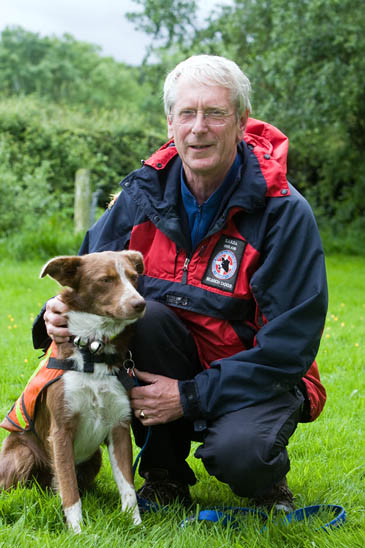
Sarda (England) chair Ian Thompson
Ian Thompson said many Dogsbodies are associates of Sarda members: “Family members, a lot of wives, husbands, boyfriends, girlfriends, do some bodying at some stage, particularly when the dog is young and in the first stages of training, when you need to do fairly constant training at home. You rely on your families to be unofficial bodies.
“Sarda members have the dog at home with them and it’s a family pet and obviously the family has to take care of that too.”
But there are others who help the volunteers as mock casualties and the handlers are happy to see more joining them. “Altogether, more than 30 dogsbodies work with us,” Mr Thompson said. “We are always on the lookout for more bodies and we can be contacted through the website.
“They don’t need any qualifications but they need to be comfortable in the outdoors. We will provide them with the necessary equipment for health and safety reasons and also for their own comfort.
“If they don’t have the right equipment such as sleeping bags and bivvy bags, we will provide them.
“We don’t allow our bodies to go out on the hill unless they are very well equipped for the conditions.
“We would be looking for walkers, people who enjoy the countryside. It’s not always necessary for bodies to go right out on the hill. For the younger dogs, they don’t have to go too far and there’s always work to do there.
“It can involve lying on the ground for a long time, but a lot of our bodies enjoy that. They like to get out there, get into their bivvy bags, get their iPods on or get reading their books. They have most of the day to themselves, with an occasional visit from a dog and a handler.
“We have training sessions as far south as Dartmoor and as far north as Northumberland and the Lake District. We also use the Peak District, mid-Pennines, the Yorkshire Dales.”
Peter Stott from Huddersfield in West Yorkshire is now a member of a mountain rescue team but started as a Dogsbody and still acts as a dummy casualty. He said: “I’ve been bodying five years. I started in Dogsbodying and moved into mountain rescue from there.
“I wanted to do something with dogs and I wanted to do something that got me into the outdoors.
“I’ve always loved dogs and always wanted a dog, but my job means I have to travel a lot and I spend a lot of time away from home, so it wouldn’t be appropriate for me to get a dog so finding something I could do in my spare time that involved dogs was killing two birds with one stone.
“It got me outdoors, it got me to interesting places and travelling round the country but it also got me doing something worthwhile.
“I’ve been as far as Dartmoor, Northumberland, Lake District, Brecon Beacons. It’s good for getting to different places and seeing different parts of the country.”
His experiences vary and on rare occasions the dogs have failed to find him. “I have actually been out all day and never been found. It was in conditions of very poor wind; very still, no wind. It was actually in Swaledale and I put myself behind a wall where the wind was going to go over the top of me and not really carrying my scent.
“It’s one of the few conditions where the dog’s effectiveness is reduced, when they are air-scenting dogs and there’s no wind to carry the scent to pick up, so it becomes much more difficult for dog and handler so they have to almost micro-search their way through an area, do things much more slowly. It was a difficult day for the dogs.”
Mr Stott has now joined a mountain rescue team. “I now navigate for a dog handler,” he said. “When I became a full member of the Woodhead team it was another way of fulfilling my desire to work with dogs. Watching dogs move, particularly border collies, across the hill is joy to observe and to be part of that search team is really very rewarding, particularly when you get a find. It’s quite a buzz; it makes it quite worthwhile.
“It’s not just about finding; it’s also about clearing areas. So when you’re looking for someone, you can say we are 90 per cent sure there’s nobody there.
“It’s about the missing people: clearing out where they might be, where they might go, working your way through those areas.”
Like many Dogsbodies, the electronics engineer is an outdoors fan. “I do a lot of walking, particularly long-distance walking, in the Peak District, the Lake District and the Dales,” he said.
“I had seen mountain rescue around. I wanted to do something a bit different and with the motivation to do something with dogs, it seemed an obvious thing to do.
“I tend to walk on my own a lot and I like solitude. When you are a body, you do have to be comfortable with your own company because you might be sitting on a hillside come what may with the weather and you need to have that comfort with yourself and confidence in your own ability so that if something does go wrong you’re all right.
“The fact you have a mountain rescue team standing at the bottom tends to be a bit reassuring.
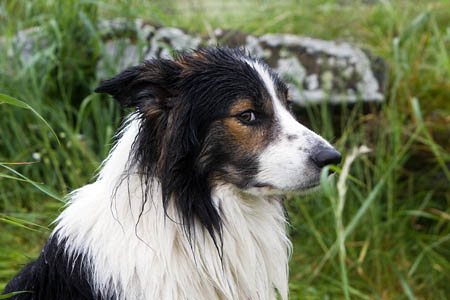
Occasionally, the dogs fail to find their 'bodies'
“Body wellbeing and safety is something the organisation is very hot on and if anybody feels they have been put into a position or situation they are not happy with, all you have to do is say so and they will find you something else, another place for you to go.”
Mr Stott rarely has to concede defeat, even on severe conditions, but he admits the weather does occasionally make things difficult. He said: “There has only been once in the Lakes where there was snow on the ground – they do give you some very good kit: Buffalo sleeping bags and Rab bivvy bags – but the coldest I have ever been was when I got to the point where I said on the radio: ‘I’m sorry guys, I’m going to have to stand up for a bit and get some circulation going.
“That was up on Red Screes. We use Patterdale hostel and we walked up towards Red Tarn. We started from 1,000ft and you probably go up another 1,000ft to the areas and we were there in December and it was bitter.”
Persistent rain can also make life difficult for a Dogsbody. “The most miserable I have ever been was in the Brecon Beacons where it just rained and rained and rained all day and everything just got wet through, even the inside of the bivvy bag wetted out,” Mr Stott said.
“You just couldn’t get comfortable you couldn’t settle. It actually got so bad with the rain we bailed out early that day because the rivers were rising and we had to cross some water to get back to the car park.
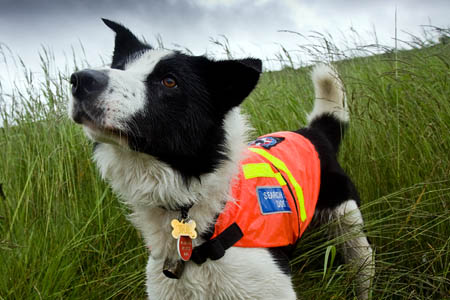
Sarda dogs will search for the Dogsbodies on training weekends
“It turned out to be a very prudent decision. There was flooding in the valleys that evening.”
Rod Kelly said: “As a Dogsbody, you will be part of an on-going search dog training programme, in all weathers in winter and summer. With your help and time, hopefully, it will make an enormous impact in the different training aspects and stages that the dogs have to achieve.
“New bodies are always welcome, and mentored at first.
“They are encouraged to start with the young puppy dogs in their socialising stage. Then move on through the different training stages. It is most rewarding to watch a young dog, move through these stages, gaining more experience, getting and better and better till it hopefully make the grading of full search dog
“Knowing you have been there as part of that dog’s training is fantastic, even more so, when that dog and its Handler help to save someone’s life.”
You can find out more about the work of Dogsbodies and how to volunteer on the Sarda (England) website.
